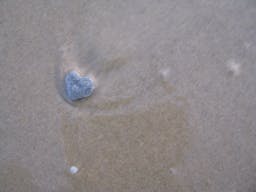Fighting For a Piece (Peace) of Land
Jan 21, 2015
Story
http://www.youtube.com/watch?v=ZsFZorI6IG4&feature=youtu.be
An Israeli lady and a Palestinian lady (citizen of Israel) share their feelings about the situation in their country
I copied the following from one of my journal entries:
Even though the Israeli Palestinian conflict is in the news almost on a daily basis, I wonder how many people know the basis of the problem. Since my assignments are about the occupation of Palestine, and its impact on Palestinians, I thought it would be a good idea to put together a few points about the history of the conflict to give more meaning to my stories.
• In the late 18000s the Zionist movement began in Europe. Its intention was to create a Jewish state in Palestine, therefore European immigration to Palestine was encouraged.
• In the 1800s, the population of Palestine was 86% Palestinian Muslim, 10% Palestinian Christian, and 4% Jewish.
• In the 1930s Jewish land ownership rose from 1% to 6%.
• Zionist terror gangs created violent conflicts between Palestinians and Jews. The violence grew as Jews fought their “War of Independence”.
• Israel was founded on May 14, 1948 – not quite 64 years ago.
• Between 750,000 and 900,000 Palestinians became refugees as they fled in fear or were expelled from their ancestral homes and villages. This is called al-Nakba, or the Catastrophe
• Approximately 531 Palestinian villages were destroyed.
• There are approximately 11 milion Palestinians worldwide. Seven million are refugees scattered around the world; hundreds of thousands live under deplorable conditions in refugee camps, and 450,000 are internally displaced persons
(IDPs) .
• 1.3 million Palestinians live in Israel, and are Israeli citizens. Discriminated against, many are not allowed to return to their former village land, which was confiscated and turned into Jewish cities. They are internally displaced persons.
• In 1967, following the Arab-Israeli war, Israel occupied the West Bank (thus it is called the Occupied Palestinian Territories) and Gaza.
• Gazan land was returned in 2005, but the borders, ports, and airspace are controlled by Israel. Gaza is known as a “large prison” for the 1.5 million people living there. The conditions are horrendous.
• The United States gives Israel more than $8.2 MILLION DOLLARS PER DAY in taxpayer money for military aid.
A FEW POINTS OF CONTENTION:
• There are 121 ILLEGAL settlements and 100 outposts in Palestine where approximately 500,000 Israelis live on confiscated, often privately owned, Palestinian land. Additionally, there are 12 Jewish neighborhoods on land annexed in 1967, and have been made part of Jerusalem.
• The Separation Barrier / Apartheid Wall which divides Palestine and Israel is ILLEGAL according to the International Court of Justice at the Hague. 85% of the planned (upon completion) 810 kilometer Wall goes deep into Palestinian land, resulting in further land confiscation and restrictions on Palestinians’ movement. . The Wall, which consists of concrete slabs, barbed wire, and electric fences, separates villages and families from each other, destroys agricultural land, water resources, and livelihoods. Approximately 20 people have been killed during weekly protests.
• To achieve their goal of sovereignty over Jerusalem and increase the number of Jews in the city, Israel attempts to push Palestinians out of East Jerusalem (occupied territory) through evictions and home demolitions, residency revocations, and isolation from the rest of the West Bank partly because of the Wall.
• By the end of October 2011, Palestinians movement was restricted by 578 closure obstacles inside the West Bank, including 69 permanently staffed checkpoints, 21 partially staffed checkpoints, and 488 obstacles such as roadblocks, earth mounds, earth walls, road barriers and gates, and trenches.
• As of January, 2012, there were 4417 Palestinian political prisoners. Of these, 132 are children; 26 under the age of 16, and 6 are women.
• Palestinians demand the Right of Return for refugees, or receive compensation if they choose not to return to their homes in what is now Israel.
This digital story is part of an assignment for Voices of Our Future a program of World Pulse that provides
rigorous new media and citizen journalism training for grassroots women
leaders. World Pulse lifts and unites the voices of women from some of the
most unheard regions of the world.




